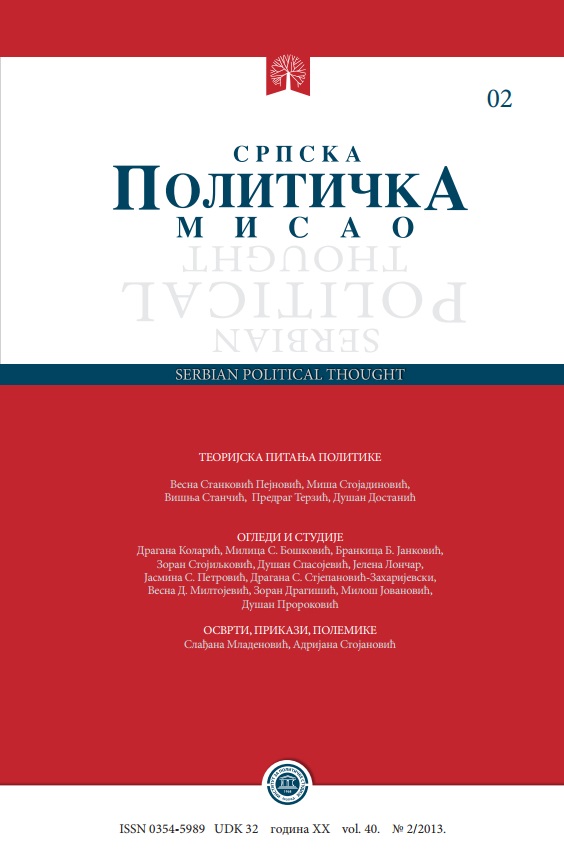Злочин агресије између права и политике
Crime of Aggression Between Law and Politics
Author(s): Dragana KolarićSubject(s): Criminal Law, Politics and law, Criminology, Transformation Period (1990 - 2010)
Published by: Институт за политичке студије
Keywords: the Rome Statute; criminal act; aggression; Security Council; United Nations; jurisdiction; the International Criminal Court;
Summary/Abstract: In Kampala, the capital of Uganda, in June 2010, at the first Review Conference on the International Criminal Court, the member- states to the Rome Statutes made a historical agreement, by adding the definition of aggression as well as determining the conditions under which the International Criminal Court will have jurisdiction for this criminal act. In this paper the author deals with the question why it was so difficult to reach the agreement on the definition of aggression, as well as possible repercussions of Kampala, more precisely the Resolution 6 of June 11, 2010, which was adopted on the 13th Plenary Session of the first Review Council of the International Criminal Court. The Review Conference gathered quite a large number of representatives, both the countries which ratified and those which did not ratify the Rome Statute. The central place in the discussions was taken by the amendment which dealt with the crime of aggression. Following intensive everyday sessions, the President of the Council of the signatory countries, Ambassador Christian Wenaweser, as well as H.R.H. Prince Zeid Ra’ad- Zeid Al- Hussein of Jordan managed to reach consensus and contribute to the adoption of the amendments to the Rome Statute regarding the definition of the crime of aggression. The delegations in Kampala, divided into certain sections, dealt with many complex issues related to the notion and elements of the crime of aggression, the conditions under which the Court will exercise its jurisdiction, the moment when the amendment will come into force. They concluded that the Court shall have jurisdiction when the case of aggression is referred to it by any state signatory to the Statute or the Prosecutor may initiate investigations proprio motu, i.e. on his own initiative, upon a UN Security Council referral, but there is also a “filtering” mechanisms for initiation of investigation. The adopted solution is pragmatic, designed to avoid conflicts with the UN Charter, but also to protect the Court independence.
Journal: Српска политичка мисао
- Issue Year: 2013
- Issue No: 2
- Page Range: 93-117
- Page Count: 25
- Language: Serbian

